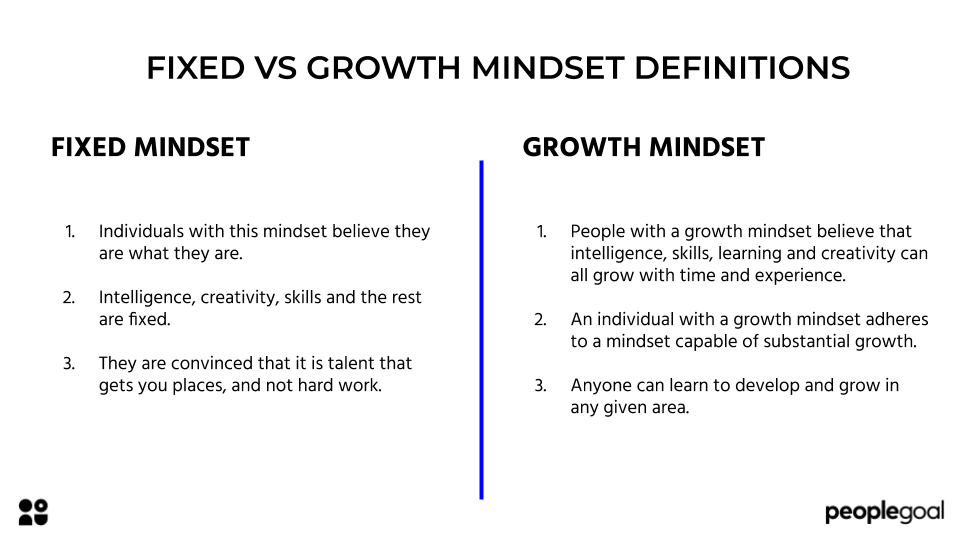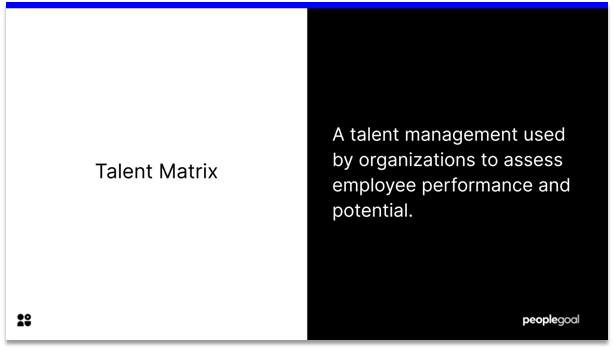Good management is critical to the success of any organization. Poor management has a negative effect on staff morale, productivity, employee turnover and causes a critically poor workforce. These effects can be viewed as a cascading process, beginning with one consequence (staff morale), and ending with another (increased employee turnover).
Many books, articles, research and courses have argued for the optimal programme for management, but most managers develop their style over time. We’ve even written a blog on the characteristics of poor management. Regardless of your style you have to establish relationships with your employees. But what traits are needed for this, and consequently, what makes a good manager?
Below are 7 key characteristics for good management; the more you have, the better you are!
1. Employee Recognition
In other posts, we have mentioned the importance of employee recognition at an organizational level. Greater employee retention and improved productivity are two benefits of recognition to the organization. But at an individual level, employee recognition is imperative.
A good manager shows his appreciation to his team when necessary and not just on a yearly basis at the appraisal. People thrive on recognition – this is particularly true in the workplace. Positive reinforcement is a serious force, and its influence is far-extending, benefiting the organization and everyone in it!

Research has identified that employees who are sufficiently recognized are 63% more likely to stay at his or her current job within the next three to six months. It is also important in ensuring employees continue to perform in the way you would like them too as 92% of workers are more likely to repeat a specific action after receiving recognition for it.
2. Talent Scout
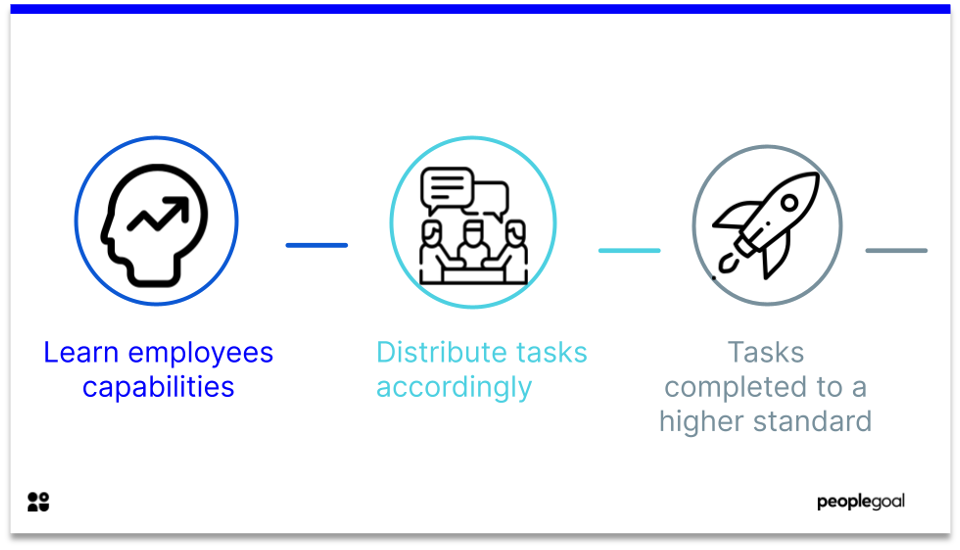
Good managers find out the capabilities of each employee, they know what each employee can or can’t do, and which areas each employee enjoys working in. They then distribute tasks according to their talents.
Consequently, the manager ensures each task is completed to a higher standard but also achieves a greater degree of employee satisfaction. Here, more than in any other of the traits, the importance of a good manager-employee relationship is crucial.
3. Mentor
A manager supports the development of their employees. They aid them when facing difficulties. They lead by example and are always available for advice. A great manager creates a safe learning environment, where the employee feels free to discuss issues openly. A good manager is not overbearing or difficult, but instead attentive to their employee’s needs, without completing the tasks for them.
Domineering management styles include those in which a manager uses an autocratic, non-participative approach to leadership. Specific style names vary, but common examples include autocratic, command and control, pacesetting, and commanding.
4. Direct and Sensitive
A good manager is open and direct with his team. They do not wait to raise issues, nor do they ignore the team when trying to resolve the issue. By recognizing that the work environment is also a space for personal growth, a manager can facilitate their employee’s completing their goals. They must be direct and understanding with team members when things are going well, and when they are going badly.
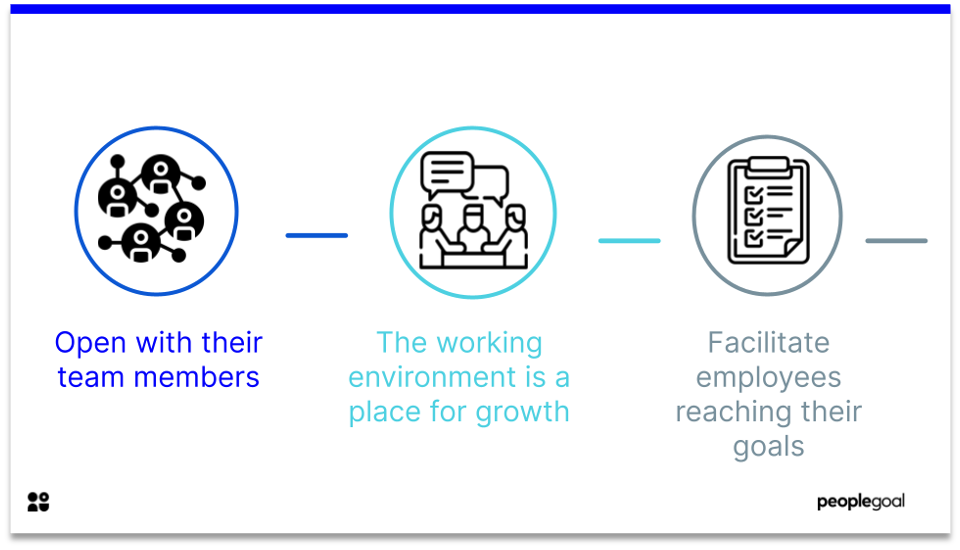
This directing style promotes learning through listening and following directions. With this style, the manager tells the employees what to do, how to do it, and when it needs to be done. The discussing style promotes learning through interaction
5. Provides Feedback
Good management involves continuous and ongoing feedback. They do not wait until the end of the performance cycle to give a general feedback appraisal to their team. The continuous feedback process has a number of benefits: specific, unbiased feedback; obstacle anticipation; increased efficiency, and it allows for continuous alignment with organizational goals.
Further, continuous feedback converts what would be negative feedback into constructive, mentor-esque advice.

Research by Forbes has highlighted the importance of feedback, with four out of 10 workers being actively disengaged when they get little or no feedback. Also, 82% of employees appreciate positive and negative feedback; and 43% of highly engaged employees receive feedback at least once a week as opposed to 18% of low engagement employees.
6. Teamwork and Team Environment
Arguably the most important trait a manager can have is the ability to work efficiently in a team. A good manager creates an environment of trust, respect, and positivity. This provides everyone with the basis for quality and productive work.
A good manager makes each team member feel equally important and creates an atmosphere of cohesion within the team, independent of the workplace itself.

Research has shown that roughly 75% of employees regard collaboration and teamwork as important. This is no surprise as it then went onto show that employees now spend about 50% more time engaged in collaborative work.
7. Sets Clear Goals and Objectives for the Team
A good manager talks with his team at the beginning of the performance cycle and identifies primary and secondary business objectives. This allows them to explain what being a top performer means to your company and has meetings regularly in regard to performance and expectations.
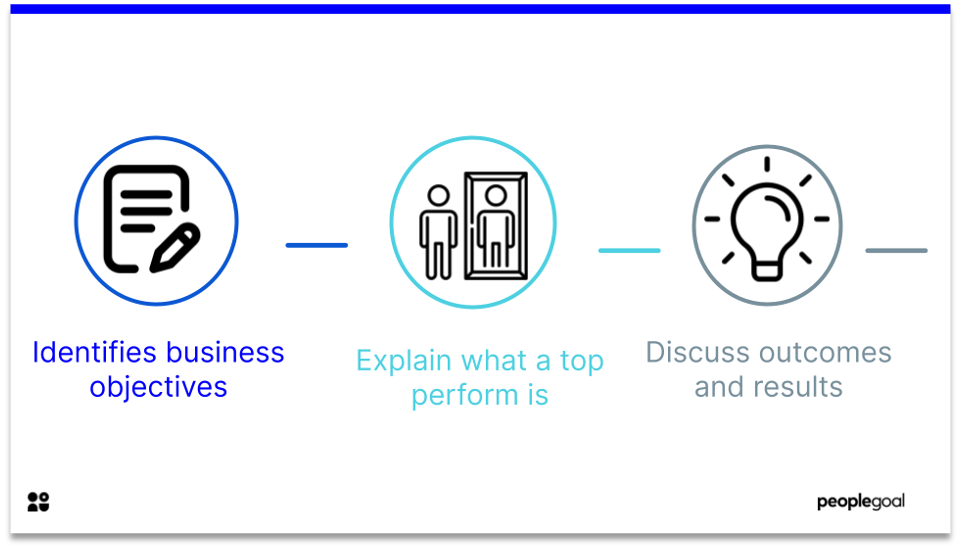
An effective manager discusses the outcomes and results of a task with the team and trusts them to execute their tasks to the expected standard. They also take the time to discuss their goals with the team and helps them achieve these ambitions.
Management: Our final thoughts
In essence, there is no predefined formula for being a great manager, and no single approach is guaranteed to be the correct one. Every workplace and employee is different, therefore, a manager must develop his own style to suit this. However, the key seven characteristics of a good manager remain true regardless of the organizational context. The more of these you have, the better you are!
Ready to 3x Your Teams' Performance?
Use the best performance management software to align goals, track progress, and boost employee engagement.
